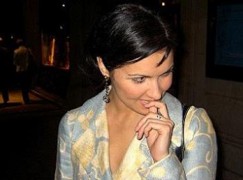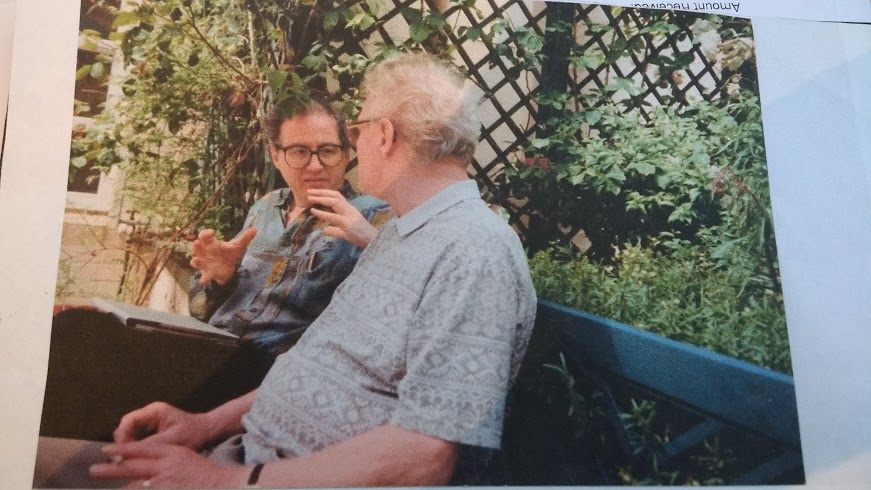They quickly recognised his conducting ability, but Tennstedt had no intention of joining the Communist Party and could not get a decent job. After stints at Chemnitz, Dresden and Schwerin, Tennstedt tried his hand freelancing in East Berlin. His friend Kurt Masur, a smooth operator with the comrades in power, got him out of several sticky situations. At his first foreign concert, in Sweden, he skipped to the West.
All it gained him was another provincial post, this time in the Baltic port of Kiel. A Canadian manager passing nearby heard him conduct Bruckner and gave him a date. An American agent booked him for Boston, where his début in Bruckner’s Eighth Symphony was one of those occasions that pushed world news off the front page. Tennstedt, at 49, was an overnight sensation, besieged by every orchestra in America.
Yet each time he went before the Philadelphia or the Chicago Symphony Orchestra his self-belief was strained. He rushed home to Inge, a down-to-earth former alto, and suffered some kind of nervous breakdown. In a year of slow recovery he discovered an affinity with the sufferings and symphonies of Mahler.
When he next took up the baton Tennstedt joined the ranks of the greatest Mahler interpreters. “I won’t say anything against young men,” he once told me, “but you have to take some blows in life in order to understand the great composers.”
The performances come rushing back to mind. A Sixth Symphony in which all of the century’s horrors seemed to be contained in the terrifying opening march. An Eighth Symphony that achieved, for the only time in my life, total coherence. A Ninth that trespassed into a world beyond ours, a world of truth. These are the unforgettables, the unrepeatables.
His repertory was small enough to start with and he whittled it down further to the bare essentials: Mahler, Beethoven, Bruckner, Brahms. His Mozart was stodgy as apricot dumplings and his Prokofiev sounded like German vodka. But in the music that mattered to him he could not be touched. I never heard him give a half-hearted performance, nor leave the podium anything but drained.
The players would walk through fire for him. He once conducted the Adagietto of Mahler’s Fifth Symphony so slowly that they could barely aspirate – and then whipped into the finale without a second’s pause. His specs were by now so covered in sweat that he had to wipe them clean, so the orchestra had only the beat of his kneecap to follow.
He was convivial enough, but was often lost for conversation, not being of an intellectual turn of mind or having much of a memory for gossip. On his balcony at Kiel, he would sit for hours watching the ships pass by. Yet there was a magnetic quality to him that was felt by musicians and children. As we chatted in German, my fidgety nine-year-old daughter sat motionless, transfixed at his side, his arm around her shoulders.
His London life ended sadly. A chain-smoker, he was diagnosed with lung cancer in 1985 and underwent surgery and radiation. He would never feel the same again, his fragile self-belief shattered beyond repair. He cancelled concert after concert, only to be greeted by a huge banner, hanging from the upper balcony of the Festival Hall: “Welcome back, Klaus!” The orchestra stripped him of his title in August 1987, but continued to hope he would recover. He finally gave up on the first day of a tour of Japan in 1992, succumbing, it seemed to me (I lunched with him that day), to a frailty of mind rather than of body.
I heard him conduct his last recording, the Beethoven violin concerto in Kiel with Nigel Kennedy, a fellow victim of musical pressures. I last saw him three summers ago in Oxford, where he had been coaxed into directing the student orchestra. For six short minutes of a Weber overture, Tennstedt was back at his best. But the moment he put down the baton, he became an old man, defeated by pain and loss.
If he could not conduct, he did not want to live. He resumed smoking with a vengeance and ruptured old friendships. Until last week, there were still people in orchestras and record companies who believed he would some day return. He belonged to no tradition and left no pupils. Like the ephemeral art of music at its finest, he has been – and gone.






